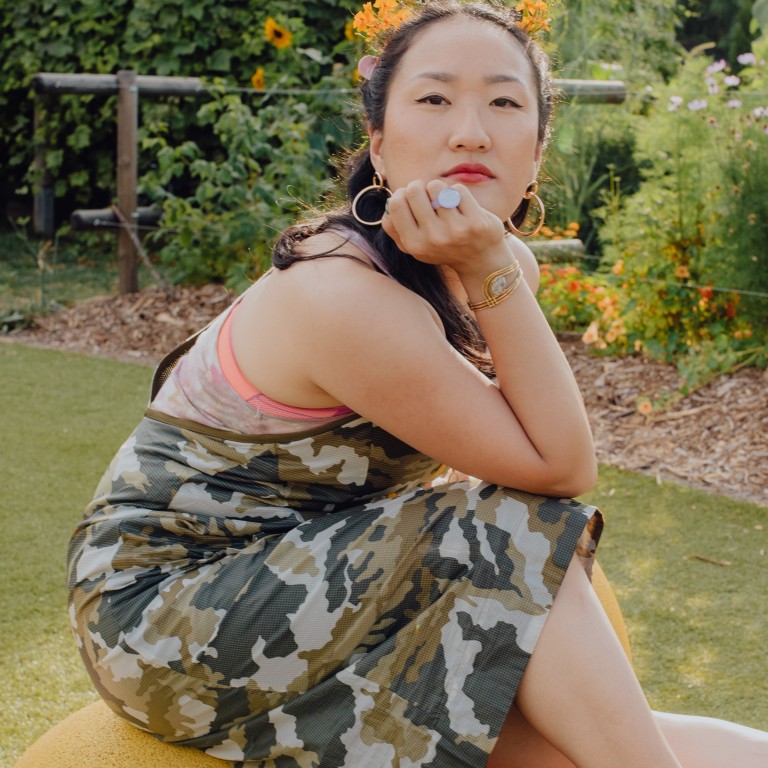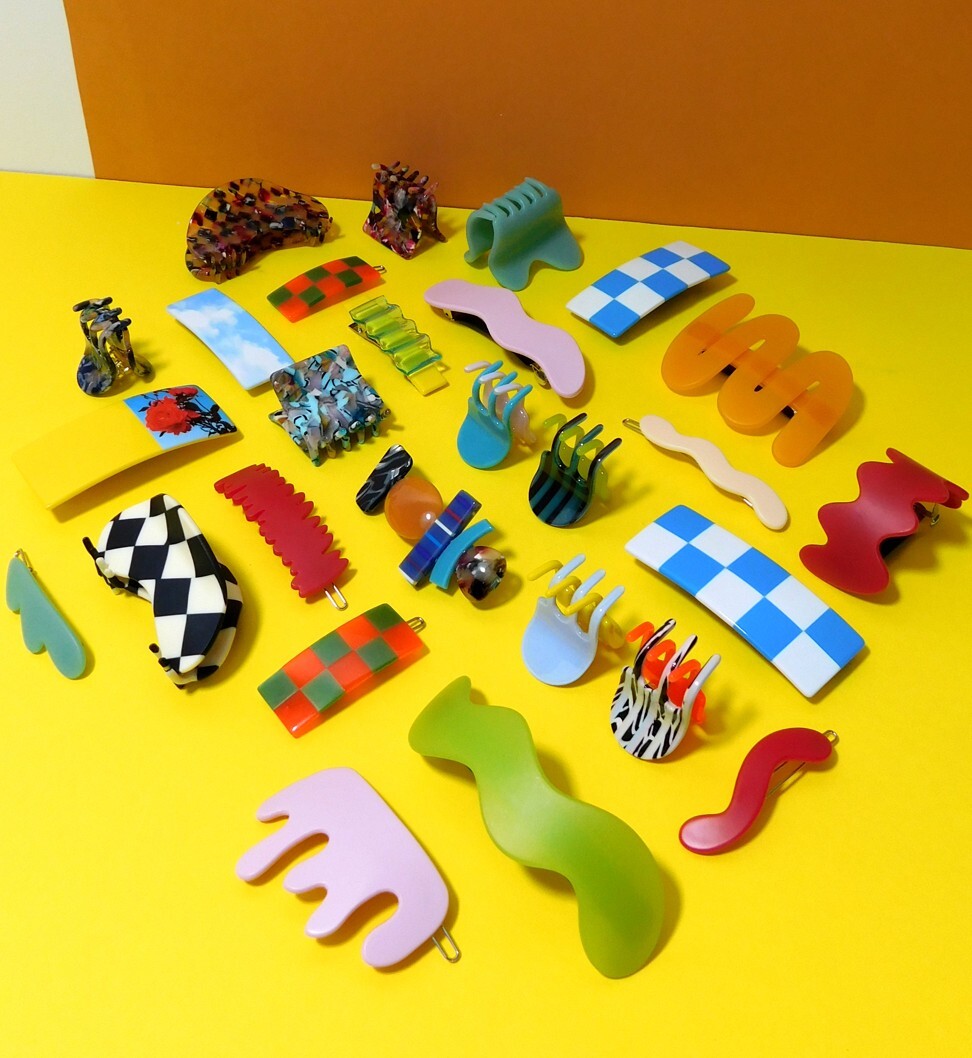
‘There’s sweatshops in America … there’s ethical production in China. It’s not black and white.’ US accessories designer on making her goods in China
- Any customer who discovers Chunks through Instagram will clearly know designer Tiffany Ju’s hair barrettes, clips and eyewear are products of China
- Ju made a conscious effort to ensure consumers understand this, as innovative Chinese manufacturers continue to grow in prestige and status
It all started with a futile quest for a hair claw.
“I just wanted a cute claw,” says Seattle-based accessories designer and artist Tiffany Ju, “which is impossible to find. You just can’t find one. It's nowhere.”
Ju is a master of many trades, including moulding and weaving textiles into curvy shapes that protrude and dangle from their form in mesmerising patterns, using weft yarn from leftover hand-dyed nylon fabric.
A graduate of Parsons School of Design in New York, the Korean-American entrepreneur went viral with her B.Z.R. Shop, founded in 2012, which featured hand-dyed ombre tights in yummy shades. Chunks is a delightfully on-trend accessories shop Ju founded last year that looks like it was made for Instagram, its products a playful explosion of squiggles and colours.
For years, she toured craft shows and art fairs in the Seattle area, selling creative goods that blended her passion for making art and upcycling materials. But crafting a claw called for a different set of skills. This time, she sketched out her ideas – literally painted shapes on a piece of paper – and sent them to a factory to be produced in China.
This is a process brands of all sizes and product ranges go through, but one that is rarely mentioned except in fine print on a small label or tag. But for Chunks, it’s an unmissable part of the brand messaging; any customer that discovers it through Instagram will know Ju’s hair barrettes, clips and eyewear are “proudly made in China”.

“I just knew that I didn’t want to hide it,” she says. “Going to a lot of craft shows and being in this world of handmade stuff, I've been in this world of ‘proudly made in the US’ – it's all handmade, it’s not mass manufactured. That’s great, but then on the flip side of that there is this weird, implied shame about the other side of it.”
The stigmatisation of Made in China arises from China being simultaneously one of the world’s fastest developing nations and its largest manufacturing hub.


In an industry where US consumers increasingly want to know where products are made, many fashion brands are being forthcoming about their manufacturing processes in China, including companies built around sustainable production such as Baggu and Everlane. Yet, while a passion for Chinese-made goods has taken hold among young shoppers in China, it doesn’t have the same appeal for many Americans.
A May poll of 1,012 adults conducted by Washington-based FTI consulting revealed around 40 per cent of Americans would not buy products from China.
Tensions between the United States and China, inflamed by their trade war and the coronavirus pandemic, have played a role in this negative sentiment in recent months. Recent headlines about manufacturing in China may have reinforced negative stereotypes – international trade associations have been grappling with phantom sellers and scammers exporting faulty and uncertified personal protective equipment and ventilators for hospitals treating Covid-19 patients.

For Ju, transparency helps reduce such distrust, and her openness about the source of her products has prompted conversations about the pros and cons of working with Chinese factories. For one thing, it’s easier than one might expect.
“I think it seems like this mysterious thing to a lot of people – I just went to Alibaba and messaged some people, and after a few years, you get better and better at it.” (Alibaba, a business-to-business marketplace, is owned by Alibaba Group, which also owns the Post.)
With agreeable margins and a productive relationship with the Chinese factory that manufactures Chunks products, Ju has been able to stay true to her goal of reducing waste. Her hair clips are made with acetate, which Ju says is preferable to acrylic or plastic because it has a shorter lifespan.
“All the acetate that is left over from production, they're able to get back to the manufacturer who makes the acetate to reuse,” she says. “I also don’t waste flawed products, which a lot of brands do, to get things 100 per cent perfect. There are a lot of throw-outs in the industry if something’s not made exactly right.”

Her “Proudly made in China” message has elicited positive reactions from customers most of the time, Ju says, but her Instagram feed still attracts sceptics who press the entrepreneur on factory conditions and worker pay.
“In any national industry, there are going to be so many different issues,” she says. “There’s sweatshops in America, there’s sweatshops in New York City, and there’s ethical production in China. It’s just not a black-and-white situation.”
Ju sees her brand messaging as an evolving story as Chunks grows, and she is working on more ways to fulfil her commitment to responsible manufacturing in areas such as packaging, as well as encouraging more conversation about the ins and outs of production in China.
The positive image of “Made in China” – the one makers like Ju want people to see – flourishes in the dozens of hip buyer shops and concept stores in China that offer a creative generation unique brands and designs. Soon, Chunks will be among them too, with the opening of a boutique in Fujian province in the country’s southeast.
“I think people are just seeing the stigma that we hold around it in a more clear light,” Ju says. “And I can see them almost in real-time starting to question it.”

